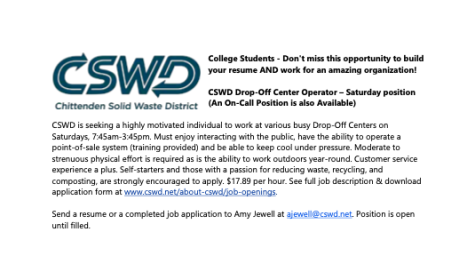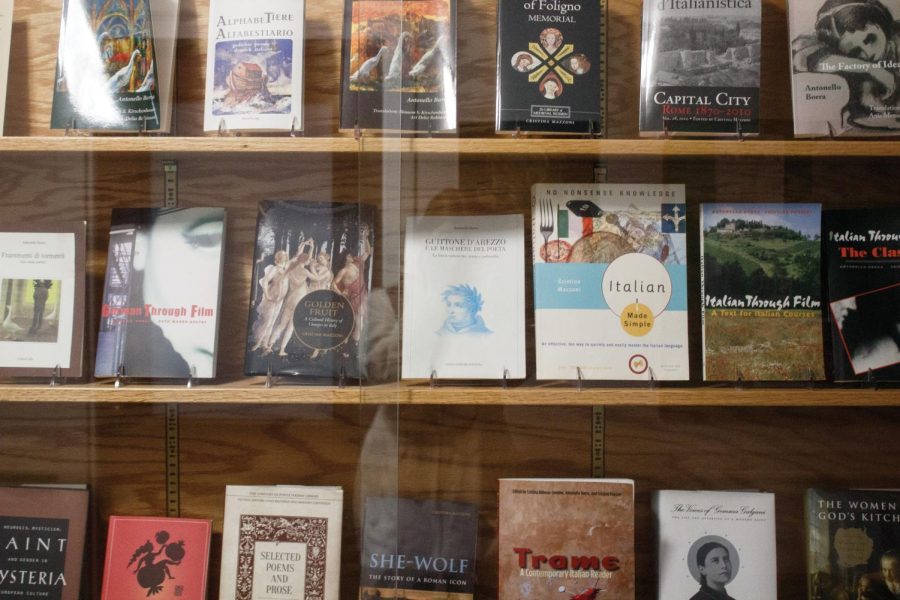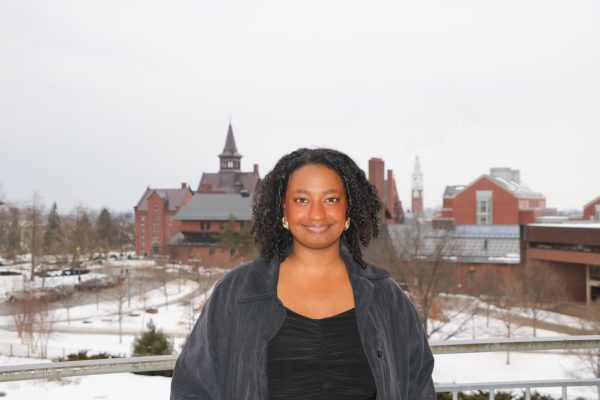Language departments to merge under new School of World Languages and Cultures
Books written by professors in the Romance Languages and Cultures Department in Waterman Building Feb 17. The College of Arts and Sciences is adding a School of World Languages and Cultures effective July 1.
The UVM board of trustees approved a proposal to create a new School of World Languages and Cultures within the College of Arts and Sciences Feb. 11, said Bill Falls, Dean of CAS.
The new school will allow for increasing both visibility of world language studies and collaboration in teaching and research, Falls said. It will officially launch July 1.
“The idea is really to bring these entities together—which are no longer called departments, they’re called programs—to encourage collaboration and interaction in ways that just does not occur when they’re separate departments in their own spaces,” he said.
Languages faculty that were previously isolated in their own departments will now attend meetings and other events together, which provides greater opportunity to share ideas about teaching and other aspects of their work, Falls said.
There will be no changes to current course offerings, majors or minors for students, he said. There will be no changes or cuts in faculty and faculty members will continue to engage in similar work as in the past.
The new school brings together the departments of classics, Asian languages and literatures, German and Russian and romance languages and cultures, which will now transition into new programs within the school, Falls said.
Programs will include the Asian languages and literatures program, offering Japanese and Chinese; the German, Russian and Hebrew program; the French and Italian program and the Spanish program, he said.
Two other programs in the new school will be linguistics and classics, according to a Feb. 11 UVM press release.
The main difference between the new programs and current departments is the structure of leadership, Falls stated in a Feb. 18 email. Programs will have a faculty program director instead of a chair.
The school will operate similarly to a department, but it will have an executive director rather than a chair and will be made up of programs, which most other departments are not, Falls said.
In December 2020, the UVM administration announced that the classics department would be recommended for termination amid budget deficits, according to a March 15, 2021 Vermont Cynic article.
Classics survived due to faculty making substantial changes to majors and minors that reduced the opportunity cost associated with low enrollment, Falls stated in a Feb. 18 email.

Faculty program directors will oversee matters such as curriculum and academic advising, Falls said. They will form an executive team that works with the executive director of the school to manage the school.
Faculty program directors will have similar responsibilities to current chairs of departments, but unlike chairs, faculty program directors will not supervise faculty, Falls stated.
The idea for a new school stemmed from the fact that the number of students studying languages has declined since 2010, he said. The hope is that the new school encourages students to study languages and understand the importance of them in a global world.
The number of Japanese, German, French and Chinese majors each saw at least a 40% decline from 2010 to 2022, while Spanish had a 36% decline, according to data from the Office of Institutional Data. Russian showed minimal decline and Italian studies was at the same enrollment.
Potential financial savings from the new school was not a major factor in the decision to create a new school, Falls said. Any savings from the move would be modest, and the main focus is to encourage enrollment and interest in the languages, he said.
The merging of these departments into a school will allow for faculty within the currently separated departments to better collaborate with each other in their work, he said.
“There’s opportunity for that literature specialist in Japanese to have a conversation in ways that may not have naturally occurred with a literature specialist in French,” Falls said.
French major LJ McCaffrey, a sophomore, said she hopes the new school will allow for increased collaboration between the languages.
“Right now, you have French and Russian and Spanish and Japanese, and they’re all very separate—there isn’t much intermingling between the different groups,” she said. “I’m excited to hopefully get to meet professors that teach other languages as well.”
Greek major Maddie Smith, a senior, said she hopes the new school will foster more awareness of the language programs and an understanding of the benefits of a language education.
“I feel like the language programs definitely are always on the brink of getting cut,” she said. “So I really hope the new school really brings more people to languages and [to] understand that this is a great education.”
Smith said she believes the success of the new school in achieving those goals depends on UVM getting the word out about it to every student, including those not in CAS.
Smith faced uncertainty when UVM threatened to terminate the classics department, she said. She hopes the new school will keep the language programs safe in the future, but has mixed feelings about the school as a whole.
“I think the school was probably more for modern languages,” she said. “And I’m not sure how Greek and Latin would be affected by that. And yeah, so I can’t help but feel excluded in that.”
The new school will allow for greater visibility of the world languages offered and greater awareness of what the departments do, said Joseph Acquisto, professor of French and chair of the department of romance languages and cultures.
“I think it really will help students to feel like they’re part of something larger than just their own particular language program,” he said. “So they’ll sort of be dual citizens of their own program and then part of something larger and stronger.”
Each individual program within the school will maintain autonomy with the ability to make choices about curriculum and matters relating specifically to the program, he said.
Faculty will decide what classes are offered and what types of curriculum are covered, Acquisto said.
“We’re looking to enhance what we have as opposed to imposing fundamental changes on the way classes look and feel,” he said.
Acquisto looks forward to greater cooperation and collaboration with colleagues as well as the chance to interest more students in majoring in a language, he said. He hopes UVM will help promote the idea that global citizenship comes with learning the language and culture of other places.
He believes having a central area for languages and cultures at the University will make it easier for students to gain awareness of the programs, he said.
“I’m hoping that it will raise the profile of languages and unite us and allow us to speak with one voice as part of the University community,” he said.









